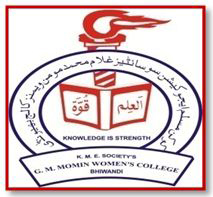| |
CONFERENCE AT A GLANCE
There is a dire need for peace and harmony in society at national and international level. And for promoting peace and harmony, religion can play a vital role. In the perspective of religion, the dialogue and understanding in very vital. The term inter-faith dialogue refers to cooperative, constructive and positive interaction between people of different religious traditions (i.e., "faiths") and/or spiritual or humanistic beliefs, at both the individual and institutional levels. It is distinct from syncretism or alternative religion, as dialogue often involves promoting understanding between different religions or beliefs to increase acceptance of others, rather than to synthesize new beliefs. Throughout the world, there are local, regional, national and international inter-faith initiatives; many are formally or informally linked and constitute larger networks or federations. The often quoted: "There will be no peace among the nations without peace among the religions”, was formulated by the Roman Catholic priest and theologian, Dr. Hans Küng, a Professor of Dogmatic and Ecumenical Theology at University of Tubingen and Professor Emeritus and President of the Foundation for a Global Ethic, Tubingen. Some inter-faith dialogues have more recently adopted the name inter-belief dialogue, while other proponents have proposed the term inter-path dialogue, to avoid implicitly excluding atheists, agnostics, humanists, and others with no religious faith but with ethical or philosophical beliefs, as well as to be more accurate concerning many world religions that do not place the same emphasis on "faith" as do some Western religions. Similarly, pluralistic rationalist groups have hosted public reasoning dialogues to transcend all worldviews (whether religious, cultural or political), termed Trans belief. Dialogue and searching for common grounds (Kalimatul Sawa) have to be the actual mission of every Muslim according to the Quranic injections. Among those people, we have to do the work for mutual understanding; we have to see whether there is any basic thing which is acceptable to both that can be called Kalimatul Sawa.
Inter-religious dialogue in contemporary society is conducted to create better relationships between people, belonging to different religions by bringing them together in dialogue: it, thus, aims to establish peace and harmony in a society, which has been devastated by religious conflicts. There are several important aspects in dialogue in this regard.
Thus, in the contemporary period, inter-religious dialogue is not simply any conversation between people with different religious identities. Rather, it is presented as an important step in understanding one’s own religion and one’s neighbour’s religions, and thus a step towards better understanding and relationships between people of different religions.
|

Click here


March 19-20, 2022
Programme Copy


Registration is FREE, but all delegates should register online through the link given below:
https://forms.gle/D6HWg7Gn9rZWZoZMA
Link for attending the conference via Zoom will be shared in advance to the delegates who have successfully registered.

CONTACT US
Institute of Objective Studies
162, Joga Bai Main Road, Jamia Nagar
New Delhi –110 025 (India)
Tel. +91-11-26981187/ 26987467/26989253
Mob.: +91 9311226224, 9810131927
E-mail: ios.newdelhi@gmail.com, info@iosworld.org
Website: www.iosworld.org |
|

